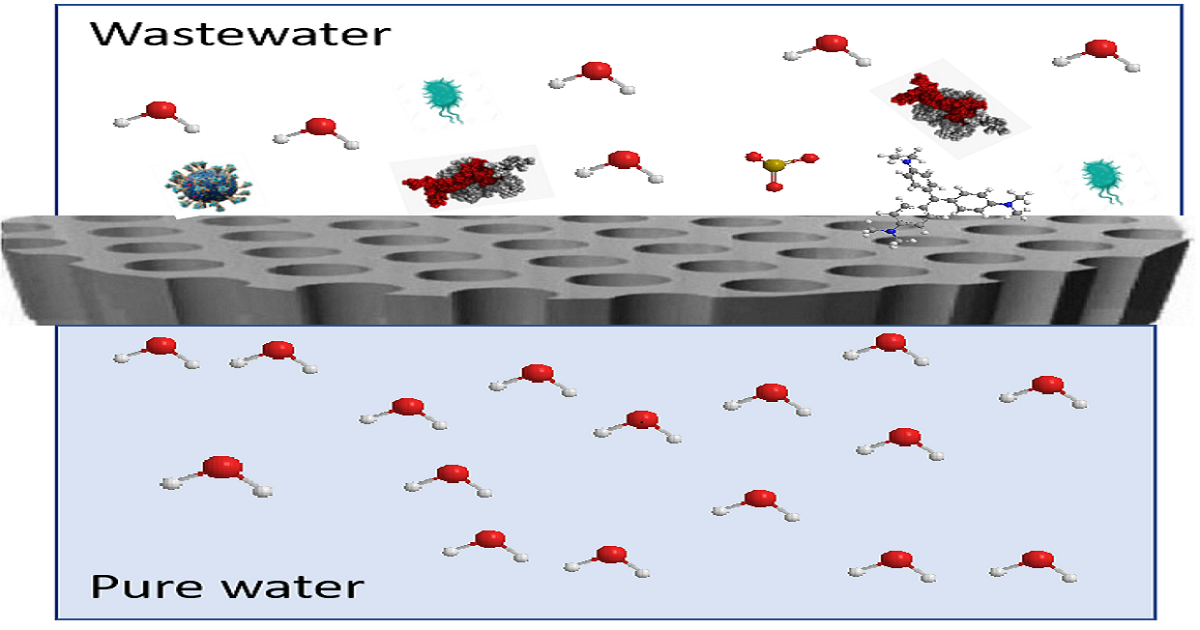Membranes for Water Treatment and Desalination
A special issue of Applied Sciences (ISSN 2076-3417). This special issue belongs to the section "Environmental Sciences".
Deadline for manuscript submissions: closed (22 April 2022) | Viewed by 261

Special Issue Editor
Interests: membrane desalination; wastewater treatment; functional materials; heterogeneous catalysts
Special Issue Information
Dear Colleagues,
Fresh water scarcity has become a critical global challenge. According to the World Health Organization (WHO), around 2.1 billion people in the world lack safe drinking water. Membrane processes such as reverse osmosis, nanofiltration, ultrafiltration, microfiltration and forward osmosis have emerged as a promising alternative to conventional water treatment processes. Several water stressed countries rely on membrane-based desalination for supplying drinking water to its consumers. Nevertheless, there are many aspects in membrane-based processes which pose a challenge. These include tuning of membrane properties for selective rejection, optimizing membrane modules for energy efficiency, membrane fouling prevention, and modifying membrane properties to meet specific requirements for industrial wastewater treatment. In addition, the introduction of novel membrane materials based on carbon nanotubes and graphene have further revolutionized this field, while several others, such as zeolite-based materials, have shown prospects of removing 100% of salt from seawater, theoretically.
This Special Issue invites original contributions from researchers working in the area of membrane-based water treatment and desalination. We welcome manuscripts based specifically on this topic, yet which cover at the same time a broad spectrum from membrane materials to membrane systems. Work in areas which have not been commercialized yet, such as membrane distillation, are also encouraged. Manuscripts in the form of short communications, full research articles, and reviews on recent developments in all areas of this exciting and fast-growing field are welcome.
Dr. Shaheen Fatima Anis
Guest Editor
Manuscript Submission Information
Manuscripts should be submitted online at www.mdpi.com by registering and logging in to this website. Once you are registered, click here to go to the submission form. Manuscripts can be submitted until the deadline. All submissions that pass pre-check are peer-reviewed. Accepted papers will be published continuously in the journal (as soon as accepted) and will be listed together on the special issue website. Research articles, review articles as well as short communications are invited. For planned papers, a title and short abstract (about 100 words) can be sent to the Editorial Office for announcement on this website.
Submitted manuscripts should not have been published previously, nor be under consideration for publication elsewhere (except conference proceedings papers). All manuscripts are thoroughly refereed through a single-blind peer-review process. A guide for authors and other relevant information for submission of manuscripts is available on the Instructions for Authors page. Applied Sciences is an international peer-reviewed open access semimonthly journal published by MDPI.
Please visit the Instructions for Authors page before submitting a manuscript. The Article Processing Charge (APC) for publication in this open access journal is 2400 CHF (Swiss Francs). Submitted papers should be well formatted and use good English. Authors may use MDPI's English editing service prior to publication or during author revisions.
Keywords
- desalination
- membranes
- reverse osmosis
- nanofiltration
- ultrafiltration
- advanced materials
- nanomaterials
- functional materials
- inorganic membranes
- composite membranes





